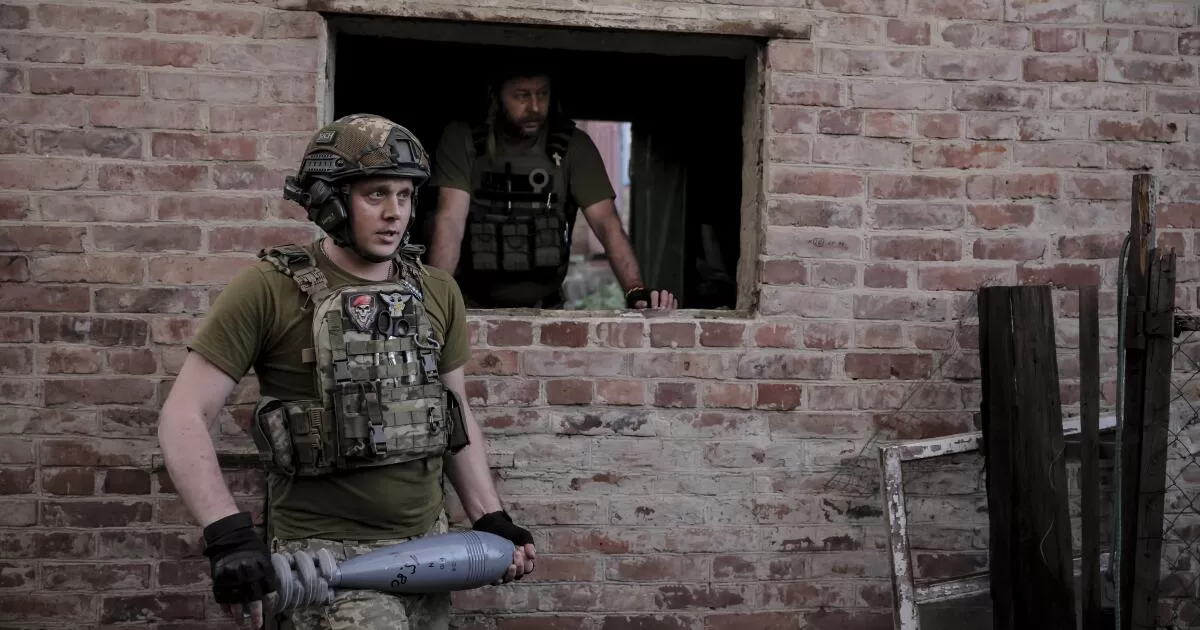First, this decision will help Ukraine counter Russia’s mounting aggression. Taking advantage of the U.S. government’s six-month delay in sending Ukrainians military aid, Russia’s autocrat, Vladimir Putin, pushed deeper into Ukraine’s east; launched a new 70-mile-wide offensive in Ukraine’s north; captured about 180 square miles of Ukraine’s territory; fired more than 3,000 glide bombs of up to one and a half tons; and intensified bombardments of Ukraine’s second-largest city, Kharkiv, wiping out power plants, residences and a hardware megastore. More than 100 Ukrainian settlements daily come under Russian fire.
Biden’s announcement appears to already be making a difference in the war. Just two days after the decision, images showed Russia’s prized S-300/400 surface-to-air launcher exploding in flames in Russia, about 35 miles from Ukraine’s northern border. Ukraine could reach it only with the U.S.-supplied HIMARS missiles. Other strikes, possibly also with U.S.-supplied M270 launchers, heavily damaged a Russian base, a weapons storage area and armored vehicle repair facilities. These efforts are helping Ukraine stall Russia’s Kharkiv offensive and undercut Russia’s capacity to attack further west and potentially target Kyiv.
Second, there’s a multiplier effect. The U.S. being the largest supplier of military equipment to Ukraine, our permission is a more powerful example than permissions granted earlier by Britain and Poland. And the day before Biden’s announcement, the leaders of France and Germany stated Ukraine should be able to use weapons supplied by others on legitimate targets inside Russia. We and our allies have now signaled our resolve and unity to support Ukraine.
Third, we showed Putin his scaremongering failed. Biden’s announcement rightly defied the Kremlin’s threat to strike at European countries “with small, densely populated territories” if U.S. weapons strike inside Russia. Our national security officials have indicated they are not detecting changes in Russia’s nuclear strike preparedness. Moreover, using nukes in Ukraine or attacking a European country — presumably a NATO member — would undermine Putin’s whole strategy: betting on diminishing international visibility and support to force Ukraine’s surrender.
Fourth, we signal that while limited, Biden’s authorization opens the door to later allowing Ukraine to hit targets farther afield. Secretary of State Antony J. Blinken stated that the U.S. will “adapt and adjust as necessary” going forward. This is important. We are telling our adversaries not to count on the U.S. to always err on the side of restraint. This is crucial to give pause not only to Moscow, but also to Beijing, Tehran and Pyongyang.
Despite the significance of Biden’s authorization, it is not enough. Given Russia’s relentless push west, it is vital to reinforce the permission with other measures, particularly boosting Ukraine’s antiaircraft capability with weapons such as Patriot missiles. The Institute for the Study of War reports that Russia is close to starting production of much deadlier three-ton glide bombs, a possible game changer. The only countermeasure is to hit the bombers before they drop their payload. This means we need to do our best to help Ukraine get F-16 fighter jets as soon as possible. In doing so we will also complement Ukraine’s battlefield resilience and significant achievements in developing air and sea drones and long-range artillery.
Ensuring Putin doesn’t win is vital to our security and prosperity. Over the last year, he laid bare his intent to intimidate and challenge us. Moscow carried out a joint naval exercise with China near Alaska; staged a tactical nuclear weapons exercise north of Ukraine; removed the buoys marking maritime borders around the Baltic states; and reportedly deployed antisatellite weapons in space. Russia knocking out our GPS or seizing our oil platforms off Alaska seems unthinkable today. But so was Russia’s World War II-style invasion of Ukraine just about three years ago.
There is special significance in Biden’s timing for the weapons authorization, announced shortly after Memorial Day. At Arlington National Cemetery, honoring America’s fallen heroes, he sent a somber reminder not to take our freedom for granted. “Every generation,” he said, “has to earn it; to fight for it; defend it.” Democracy and freedom are not just about the type of government, he said, but are “the soul of our nation.”
That’s what Ukrainians are fighting and dying for. An opinion poll that I led in mid-May with Ukraine’s National Academy of Sciences — funded by the National Science Foundation — makes this clear. Nearly 90% of 882 Ukrainians we polled report war-related traumas, and more than 80% report family members, health, homes and jobs lost to Putin’s invasion. Yet, as in our three prior wartime surveys, 80% believe democracy and free speech are vital for their future. Ukraine’s fight for survival is also a fight for what we Americans hold dear.
Mikhail Alexseev, a professor of international relations at San Diego State University, is the author of “Without Warning: Threat Assessment, Intelligence, and Global Struggle” and principal investigator of the War, Democracy and Society project funded by the National Science Foundation.
